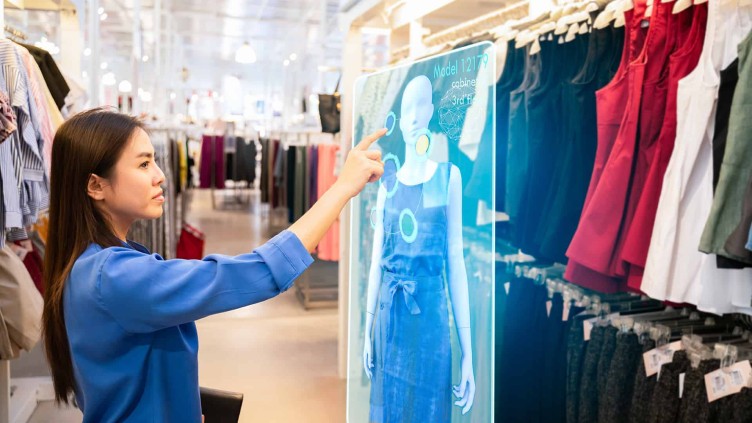Inventory management systems' capabilities can be greatly increased using AI-based solutions. Visual recognition, demand forecasting, and smart proposals are all used extensively by many businesses worldwide. Utilizing such methods lowers costs, boosts sales, and improves the customer experience.
Shopping stores like Levis’Store, Gap, and Old Navy rely on visual recognition AI. It allows for virtual clothing viewing and trying on for consumers. Additionally, users of digital tools can receive smart, personalized recommendations. The search process is also made easier for customers through this functionality.
Both clients and the fashion industry's production sector profit a lot from AI innovations. AI solutions can assist retail and eCommerce businesses in streamlining their supply chains. Typically, this is done by scheduling product deliveries, which also helps cut down on inventory wastage as a consequence.
This article discusses 5 ways artificial intelligence can enhance inventory management.
Reduced Stock Discrepancies
Shipping products to customers is simply one aspect of inventory management. Instead, having the goods ready before customers even place their orders necessitates exceptionally accurate forecasting. Understocking results in shortages and dissatisfied customers, while overstocking may result in lost revenue.
Stock Control
Businesses benefit from AI software's ability to precisely predict consumer demand for particular products. Moreover, it adjusts to shifting patterns, fast-tracks seasonal changes, and takes regional demand into account when stocking inventory. Algorithms can reliably predict whether products will fly off the shelves or languish in back rooms by analyzing millions of sales and can suggest dead stock items in smart product recommendations to leverage inventory.
Demand Prediction
By placing orders based on real-time demand rather than anticipating it, businesses may stay ahead of the competition and keep the supply chain rolling. Businesses can enhance customer satisfaction while cutting costs when they can manage their inventory more effectively.
Fulfillment Procedures
By matching them with potential suppliers, AI software enables firms to respond swiftly when inventory levels drop. AI program simply updates the database of a company's suppliers with the most current stock. In just mere seconds, the technology can quickly choose the best provider for a given order by analyzing it based on several factors, including pricing, delivery time, and supplier reliability.
Automated Material Procurement
For any manufacturing company that requires supplies and equipment, procurement is a crucial component. Managing a large volume of documents and vendors among other factors is a common part of this procedure. With so many elements of procurement, it is easy to understand how errors and inefficiencies might develop. Such warehouse operations, from the initial step of quoting through to the supply chain, can be automated using AI analytics.
GardeRobo A.I. carousel management software helps fashion retailers sell unsold goods by offering personalized, beautiful product recommendations to the end user. This provides online shoppers with firsthand information, guidance, and clarity, which entices customers and allows them to shop around with confidence.
Conclusion
Inventory management in fashion retail may be directly impacted by AI. Big data analytics and machine learning, however, can also enhance inventory procedures. And they do this by anticipating demand. To determine client preferences, this functionality links with AI inventory management software. Additionally, it can scan outside sources to identify patterns and plan stock replacement. In other words, fashion companies can significantly cut costs associated with improper forecasting, warehousing, and product delivery. All they need to do is to start using AI-based software promptly for managing inventory in the fashion retail industry.











